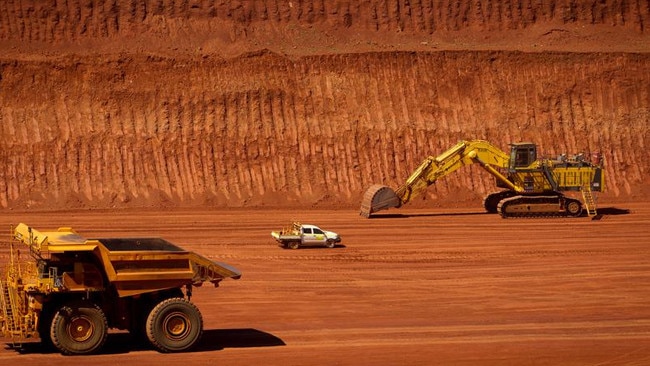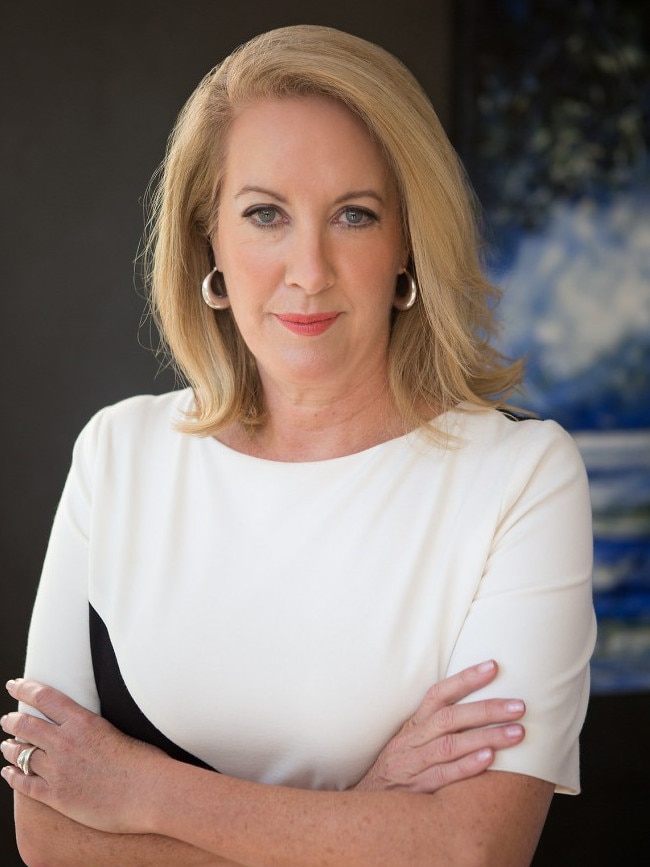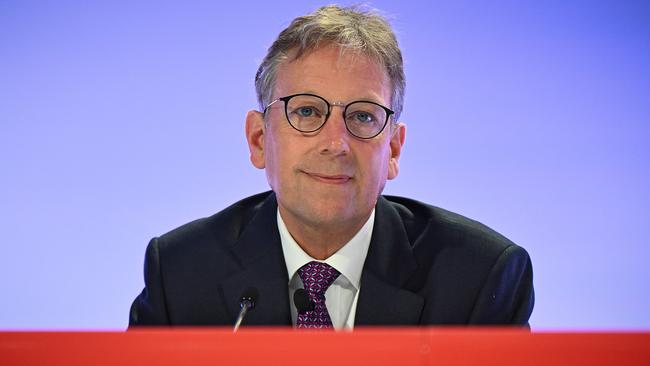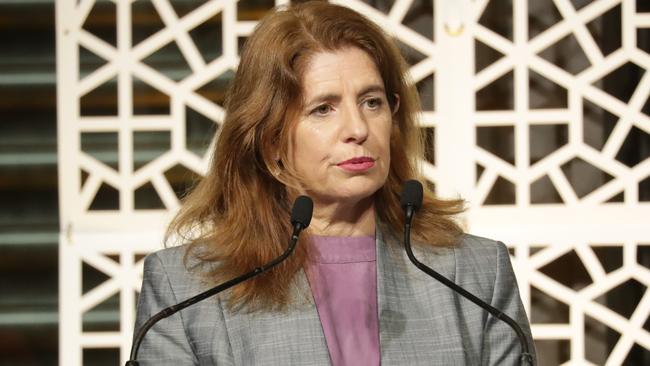Rio Tinto CEO Jakob Stausholm apologises for stoking workplace ‘battle of the sexes’
Rio Tinto chief Jakob Stausholm has apologised to staff as its latest findings reveal more rape or attempted rape allegations and a growing ‘battle of the sexes’ over its equality initiatives.

Rio Tinto boss Jakob Stausholm has apologised to victims of sexual assault, harassment and bullying after an update on the mining giant’s efforts to promote gender diversity and inclusion revealed an emerging battle of the sexes.
The update released two years on from a Rio’s crackdown on illegal and inappropriate workplace behaviour also revealed a disturbing increase in allegations of rape or attempted rape.
The research indicated an increase in bullying and noted some of this appeared directed at women as men “retaliated” to Rio efforts to promote gender diversity and inclusion, with bullying most prevalent in the WA iron ore operations.
Mr Stausholm defended the company gender diversity targets after a suggestion from the report’s main author, former Australian sex discrimination commissioner Elizabeth Broderick, that being more ambitious could speed up improvements in workplace culture.
In her update on Rio’s workplace culture, Ms Broderick found Rio was making some progress but not as much as it would like on bullying, sexual harassment, racism and other forms of discrimination throughout the company.
There were eight allegations of rape or attempted rape within the Rio workforce in the past 12 months, up from five cases in 2021 – the year before Rio took decisive action to protect women working at its iron ore mines and in other operations.
Rio did not provide details of where the eight recent cases occurred, but it is understood the incidents were spread across four countries.

Of more than 10,0000 workers surveyed, 32 reported experiencing pressure or requests for sex or sexual acts, compared to 37 people in 2021.
Almost 40 per cent reported experiencing bullying compared to 31 per cent in 2021. The number experiencing sexual harassment was steady at 7 per cent.
Rio is also grappling with a backlash from some male employees who feel they are victims of reverse discrimination and being overlooked for promotion in favour of women.
The multinational miner is two years into a “long-term cultural change program” based on the recommendations of the landmark Everyday Respect report prepared by Ms Broderick.
The 2022 report was handed down with Rio, BHP, Fortescue’s and other big miners reeling from multiple reports of sexual assault at their operations in WA.
Rio responded by spending $200m in 2022 on security and safety upgrades at its mining camps in the Pilbara. The work included fitting 16,000 new locks on rooms across accommodation villages, beefing up lighting and CCTV and security guard coverage.
Mr Stausholm said the update showed some behaviour and attitudes within Rio remained unacceptable and harmful.
“I am greatly troubled by this and sincerely apologise on behalf of our leadership team to anyone affected,” he said.
“I think (positive) things are happening in quite a significant way, but they all there are also still things happening that are unacceptable. It feels like we’re doing all the right things and that we will stay the course on this.”

On a positive note, many of the workers surveyed said they had noticed improvement in areas like bullying (50 per cent), sexual harassment (47 per cent) and racism (46 per cent).
Rio baulked at a suggestion in the latest report that it could accelerate change by setting more ambitious gender diversity targets.
Rio’s current target is to increase the female component of its workforce by 2 per cent a year. It has increased from 22.9 per cent to 25 per cent in the past two years.
Mr Stausholm said Rio would not rush out with a new target in part because of the sense of reverse discrimination among some male workers.
“We keep on strengthening the female participation in the workforce at all levels, both at the most junior level and at the most senior level,” he said.
“It’s like climate change, you use this terrible term just transition. It has to be a just transition. You obviously want your workforce to stay for a long time. You don’t want a lot of changes in your workforce.
“We’re certainly not going to start saying goodbye to men in order to create spaces for women in that regard. Finding the right balance is tricky, and it does create some tension.”
The Broderick research team said they heard from both men and women who voiced their resistance to the Everyday Respect agenda. From men, the resistance was around feeling undervalued or overlooked, and included complaints that women were being hired and promoted without suitable qualifications.

One unnamed male worker quoted in the report, said: “As a white heterosexual male, I feel as though my thoughts and feelings aren’t worth expressing anymore. There is so much talk and acknowledgement surrounding women, indigenous and LGBT communities that my thoughts just get squashed.
“The female general manager held a ‘Female Only’ meeting late last year. I can only imagine the uproar if a male manager held a ‘Male Only’ meeting.”
The report said some women were concerned the focus on gender equality and diversity had undermined their credibility in the workplace because of the perception of special treatment.
“The comparison of survey data between 2021 and 2024 reveals a mixed picture. This should be understood within the broader context of change, where resistance is evident and may be contributing to a rise in harmful behaviours in some areas,” the report said.
“Continuing effort will be essential to ensure resistance and backlash lessen.”
Ms Broderick said Rio deserved credit for its leadership and commitment to transparency in driving cultural change in the workplace.
“This is a significant undertaking in a global company with a growing and dynamic workforce, diverse roles and complex working environments,” she said.
“Two years on, the progress is evident and there is an ongoing commitment to this work. I am not surprised to see some areas where results haven’t improved, this is a normal part of the cultural change process.”
Rio has largely rolled out all 26 recommendations from the 2022 Everyday Respect program and the updated found increased diversity had led to better performance in some areas.
Rio chief executive for Australia Kellie Parker said a focus had been on removing structural barriers to recruiting and retaining women and workers from minority groups.
“When women design systems for recruiting women, it sticks. And when Aboriginal people design recruitment for Aboriginal people, it sticks,” she said.
Ms Parker said recruitment and promotion had to be a fair so there was no ill-feeling when teams changed.
“We do need a way of meeting people where they’re at, talking to them about why we want to change and how we actually get better because a diverse team should be better. We see better outcomes when we’ve got diversity in our in our workforce,” she said




To join the conversation, please log in. Don't have an account? Register
Join the conversation, you are commenting as Logout